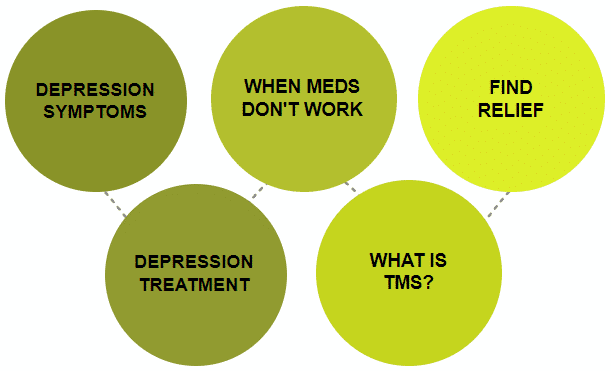Can TMS Help My Depression?

LEARN ABOUT DEPRESSION AND HOW TO FIND RELIEF
Depression affects millions of people around the world. Roughly 14.8 million Americans experience depressive symptoms every year. That’s 6.7% of the population!
If your thoughts of sadness or loneliness are lasting an extended period of time and are preventing you from leading a normal, active life, it’s time to seek help.
Unlike typical doctor’s offices, Ascend Health Center in Akron has short wait times and can quickly connect you with a counselor. Request an appointment today and start receiving the help you deserve. Besides investing in the community with an educational show on WCTV, they work with the Wadsworth offices of Akron Children’s and Summa, and you don’t have to leave your current therapist or psychiatrist.

What are the Symptoms of Depression?
DEPRESSION SYMPTOMS
One key element to identifying this mood disorder is recognizing the symptoms.
Common signs and symptoms of depression include:
- Consistent feelings of sadness, anxiety, or feeling “empty”
- Fatigue
- Trouble remembering details
- Difficulty making decisions
- Lack of concentration
- Feeling helpless, worthless, or guilty
- Intense pessimism
- Feeling restless or having insomnia
- Irritability
- Loss of interest in past enjoyable things
- Long-lasting aches and pains
- Loss of appetite or overeating
- Digestive issues that do not resolve with treatment
- Thoughts or attempts of suicide
Depression Treatment

HOW DO I TREAT MY DEPRESSION?
First, reach out to your doctor or contact a physician at Ascend Health Center. About half the people who have depression never have it clinically diagnosed or treated. Talking with a trained mental health professional is the first step to feeling like yourself again.
Your doctor will conduct a thorough diagnostic evaluation, including a physical examination and an interview.
Your doctor may ask the following questions:
When did your symptoms start?
How long have your symptoms lasted?
What is the severity of your symptoms?
Does depression or mental illness run in your family?
Do you have a history of drug or alcohol use?
After your evaluation, your doctor will create a personalized treatment plan. This plan may include a combination of medications and therapy.
What is Treatment Resistant Depression?
WHEN MEDICATION DOESN’T WORK
If you’ve tried depression medication, but haven’t seen results, you may have treatment-resistant depression. Don’t worry – there are other options.
Your doctor may suggest more options such as comprehensive holistic treatment, ketamine infusions or Spravato therapy, or transcranial magnetic stimulation. They may even refer you to a depression clinic which specializes in these types of treatments and therapies.
Transcranial Magnetic Stimulation for Treatment Resistant Depression

WHAT IS TMS?
TMS or transcranial magnetic stimulation is an FDA-cleared non-invasive procedure for treatment-resistant depression. It delivers magnetic impulses through an electromagnetic coil to the prefrontal cortex, the region of the brain associated with mood control.
TMS helps nerves begin to communicate again and reinforces positive nerve pathways. This treatment lasts less than four minutes. Yes, you read that right – in under four minutes, you can be on the path to feeling better. Therapy takes place five days a week for four to six weeks and is covered by most insurance plans.
This drug-free, non-invasive, FDA-cleared therapy could be the treatment for depression you’ve been waiting for.



















